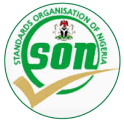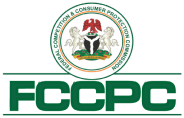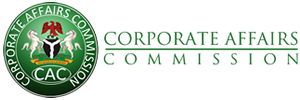AFPD Division
Functions of AFPD Division
- Provision of science-based advice and information on the quality, safety and efficacy of animal feed, animal feed additives, concentrates, premixes and supplements.
- Development and promotion of standards, regulations and guidelines in consultation with Government Agencies, professionals and stakeholders on animal feed, animal feed additives, concentrates, premixes and supplements.
- Regulation of the manufacture and distribution of animal feed, animal feed additives, concentrates, premixes and supplements.
- Conduct science-based research to establish appropriate regulatory measures to ensure safe and responsible use of animal feed, animal feed additives, concentrates, premixes and supplements.
- Conduct industrial outreach to clarify the respective roles of industry and the Agency in allied products safety.
- Monitor production facilities and maintain vigorous inspection oversight to ensure standards are maintained.
- Carry out the listing of toll millers.
- Evaluate and issue authorization to purchase former food.
- Supervise the conduct of field trials for premixes/additives and evaluate the data.
AFPD Regulated Products
- Pet Food – food for cats, dogs and other companion animals such as parrots, etc.
- Animal Feed – complete cattle feeds, fish feeds, poultry feeds, pig feeds, snail feeds, rabbit and small ruminants feed, etc.
- Animal feed concentrates, premix, additives, supplements and fish meal- raw materials in feed production.
Activities of AFPD Division
- Issuance of permit to import animal feed, concentrates, premixes and additives.
- Registration of products for Marketing Authorization.
- Listing Certification for producers of unbranded feeds.
- Routine Monitoring of commercial millers, toll millers, on-farm millers.
- Field Trial Monitoring.
- Risk categorization of products for effective regulation.
- Advocacy on GAP/Food Safety (emphasis on the dangers of AMR/Residues) at farm clusters.
- Implementation of HACCP Policy (Most Recent)
Inspection, Regulations And Stakeholder Relation Division (IRSD)
Functions Of IRSD
- Undertake the inspection of facilities used in the manufacture of veterinary and Agro-allied products.
- Sample of veterinary and Agro-allied production for laboratory analysis as part of process for registration.
- Conduct industrial outreach on new improved ways of enduring safety.
- Conduct inspection of the warehouse for the purpose of permit issuance.
- Relate with stakeholders on regulatory policies on veterinary and Agro allied products.
Core Activities Of IRSD
- GMP Inspection of facility manufacturing veterinary and Agro allied product.
- Conduct warehouse inspection as part of the process for permit issuance.
- Relate with stakeholders on VMAP regulated products.
- Cold chain monitoring for vaccines.
FAQs
Question: Why must VMAP inspect my facility?
Answer: To verify that your facility meets minimal Good Manufacturing Practice (GMP) requirements which ensure that, the facility, equipment and controls to be used in the manufacturing process and packaging of products meet quality standards.
Pesticides And Agrochemicals Division (PAD)
Functions Of PAD
- Providing science-based advice and information on the quality, safety and efficacy of pesticides and Agro-chemicals.
- Developing and promoting standards, regulations and guidelines in consultation with relevant Government Agencies and stakeholders on pesticides and agrochemicals.
- Regulating and controlling the use of pesticides and Agro-chemicals.
- Conducting inspection and monitoring of production premises of pesticides and Agro-chemicals facilities.
- Conduct scientific research into various areas of pesticides and Agro-chemicals products.
- Monitor production facilities and maintain inspection oversight to ensure standards are maintained.
Core Activities Of PAD
- Issuance of permit for Importation of Bulk Pesticides, Agrochemicals and Fertilizers through trade portal (https://trade.gov.ng/nafdac) except for Bio-Products and restricted Agro-chemicals.
- GMP inspection of local manufacturing facilities of finished Pesticide and Agrochemical products.
- Listing of Pesticides and Agrochemical Dealers.
- Issuance of permit to import Field Trial Samples.
- Conduct field trial evaluation monitoring exercise of new pesticide molecules, bio-fertilizers and bio-pesticides
- Review of dossiers submitted for registration of local and imported finished pesticide and Agro-chemical products.
- Conduct industrial outreach on handling, safe and responsible use of pesticides and Agro-chemical.
- Routine monitoring of importers of bulk, dealers and manufacturers of pesticides and Agro-chemical products.
Veterinary Medicine Division (VMD)
Functions Of VMD
- Providing science-based advice and information on the quality, safety and efficacy of veterinary medicinal products (veterinary drugs, vet cosmetics and medical devices), veterinary vaccines and biologics.
- Developing and promoting standards, regulations and guidelines in consultation with relevant Government Agencies and stakeholders on veterinary medicinal products (veterinary drugs, vet cosmetics and medical devices), veterinary vaccines and biologics.
- Regulating and controlling the use of veterinary medicinal products (veterinary drugs, vet cosmetics and medical devices), veterinary vaccines and biologics.
- Conducting inspection and monitoring of production premises of veterinary medicinal products (veterinary drugs, vet cosmetics and medical devices), veterinary vaccines and biologics facilities.
- Conducting scientific research into various areas of veterinary medicinal products (veterinary drugs, vet cosmetics and medical devices), veterinary vaccines and biologics.
- Monitor production and storage facilities and maintain inspection oversight to ensure standards are maintained.
Core Activities Of VMD
- Issuance of permit for importation of veterinary medicinal products (veterinary drugs) and veterinary vaccines through trade portal (https://trade.gov.ng/nafdac) except for APIs and controlled veterinary drugs.
- GMP inspection of local manufacturing facilities of finished veterinary medicinal products (veterinary drugs, vet cosmetics and medical devices), veterinary vaccines and biologics products.
- Issuance of permit to import Field Trial Samples.
- Conduct field trial evaluation monitoring exercise of new veterinary medicinal molecules.
- Review of dossiers submitted for registration of local and imported veterinary vaccines
- Conduct industrial outreach on handling, safe and responsible use of veterinary drugs
- Routine monitoring of importers, distributors and manufacturers of veterinary medicinal products (veterinary drugs, vet cosmetics and medical devices), veterinary vaccines and biologics.
Was this helpful?
Yes
No
Thanks for your feedback!






